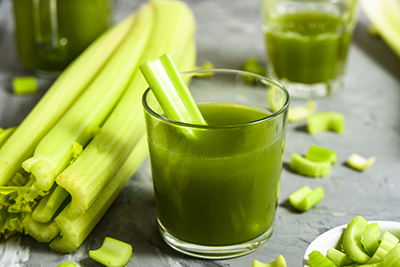Contents
The health benefits of celery are many; however, before we get into the benefits, let us learn more about this food. The taste of celery is unique. Its crunchy, tender stalks do not go unnoticed in salads, no matter how many other ingredients they may contain. Moreover, the essential oil responsible for the taste also gives it the most healthful properties.

Health Benefits of Celery
From a nutritional standpoint, celery does not stand out. It is poor in carbohydrates (1.9 percent) and proteins (0.75 percent) and has no fat. The active substances that it contains make it useful in the following cases:
Health benefits of celery: (FLUID RETENTION), kidney stones, gout, an increase in uric acid, and arthritis are all caused by the remarkable diuretic effect of its essential oil. This oil triggers the expansion of the renal arteries, resulting in increased urine volume and elimination of waste materials such as uric acid and urea.
Health benefits of celery: (METABOLIC ACIDITY): Celery is a true alkalizer capable of neutralizing excess acids in the body due to its richness in alkalizing mineral salts. A meat-rich diet and animal products generate excess acidity in the blood and internal organs, which has multiple adverse health effects, such as increased calcium loss, the formation of renal calculi, and fluid retention.
Celery, particularly if drunk as a broth, has an alkalizing and remineralizing effect like the onion. It neutralizes excess blood acid and facilitates the urinary elimination of metabolic acids.
Health benefits of celery: (HIGH BLOOD PRESSURE): Celery contains considerable sodium (some 87 mg/100 grams) used to prepare celery salt. Despite this, celery has a hypotensive effect since its essential oil contains an effective vasodilator called 3-butylptalide. This, combined with its diuretic effect, makes it particularly beneficial to those suffering from hypertension.

Health benefits of celery: (HIGH CHOLESTEROL): An interesting experiment was conducted at the University of Singapore to demonstrate celery’s capacity to reduce blood cholesterol levels. During eight weeks, two laboratory guinea pigs were fed a high-fat diet. Two tablespoons of celery juice were added to the daily diet of one of the groups. After eight weeks, these animals presented significantly lower cholesterol levels than those not fed celery juice. This simple experiment supports the positive habit of eating celery, particularly celery juice, to reduce blood lipid and cholesterol levels. Celery’s impact is more remarkable if a corresponding cholesterol intake is reduced.
Health benefits of celery: (TYPE II DIABETES) Celery contains lesser amounts of glycogen, like insulin, which reduces blood sugar levels. Thus, although celery includes moderate carbohydrates, it is indicated for diabetics.
Health benefits of celery: (PSORIASIS) Celery includes psoralens, substances that can produce an allergic reaction to sunlight in susceptible people. These same substances shield psoriasis, a challenging-to-treat disease characterized by scales and reddish eruptions on the skin.
Warning
Celery consumption is not advised for pregnant women, especially during the first trimester, since it can cause uterine spasms and increase the risk of miscarriage.
Celery Scientific Facts
- Scientific name: Apium graveolens L.
- Other names: Pascal celery, true celery.
- French: Céleri.
- Spanish: Apio.
- German: Sellerie.
- Description: The stalks and leaves of celery, an herbaceous plant of the botanical family Umbelliferae.
- Environment: Celery is grown throughout the world. Wild celery is found in salty soils along the coasts of Southern Europe.

How to Use and Prepare Celery
- RAW IN SALADS: Tender, crunchy stalks are used.
- BOILED: This is used in preparing depurant broths, whether by itself or with onion, nettles, parsley, or cabbage.
- FRESH JUICE: This is made using stalks and leaves. One-half glass is drunk with each meal with lemon to taste.
DISCLAIMER: All content on this website is presented solely for educational and informational objectives. Do not rely on the information provided as a replacement for advice, diagnosis, or treatment from a qualified medical expert. If you are pregnant, nursing, or have any preexisting medical concerns, talk to your doctor before using any herbal or natural medicines.
REFERENCES
- George D. Pamplona-Roger, M.D. “Encyclopedia of Foods and Their Healing Power.” George D. Pamplona-Roger, M.D. Encyclopedia of Foods, and Their Healing Power. Trans. Annette Melgosa. Vol. 2. Chai Wan: Editorial Safeliz, 2005. 248, 249. Print.
- Christensen, L. P., & Brandt, K. (2006). Bioactive polyacetylenes in food plants of the Apiaceae family: occurrence, bioactivity and analysis. Journal of Pharmaceutical and Biomedical Analysis, 41(3), 683-693. https://pubmed.ncbi.nlm.nih.gov/16488516/
- Yan, X., Zhang, Y., & Liu, R. (2016). DL-3-n-butylphthalide improves cognitive impairment induced by Aβ1-42 oligomers in mice. Journal of Alzheimer’s Disease, 50(1), 187-199.
- National Institutes of Health. (2021). Folate: https://ods.od.nih.gov/factsheets/Folate-HealthProfessional/
- WebMD. (2023). Celery:https://www.webmd.com/diet/health-benefits-celery
- Healthline. (2022). Benefits of Celery: https://www.healthline.com/health/food-nutrition/health-benefits-of-celery
